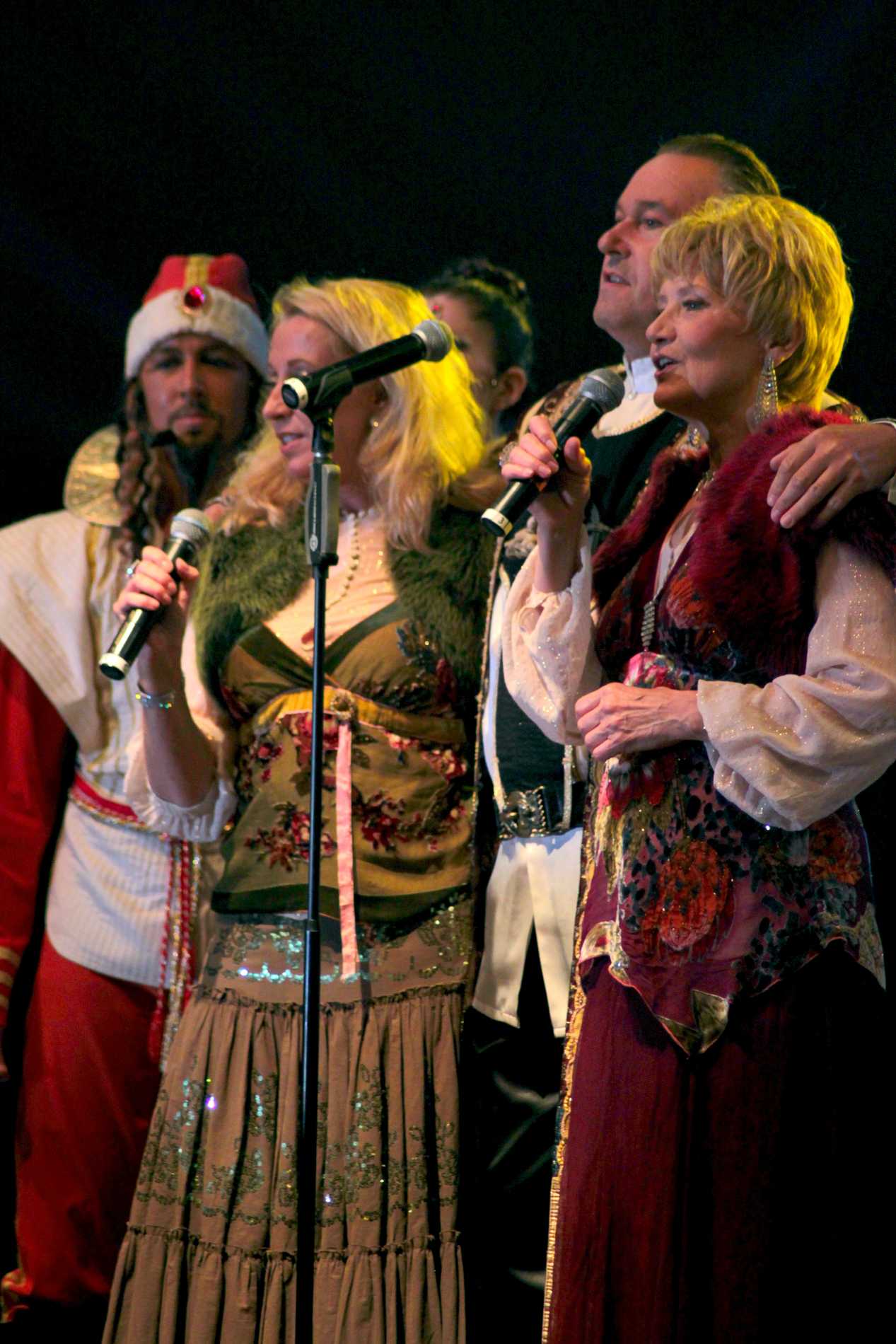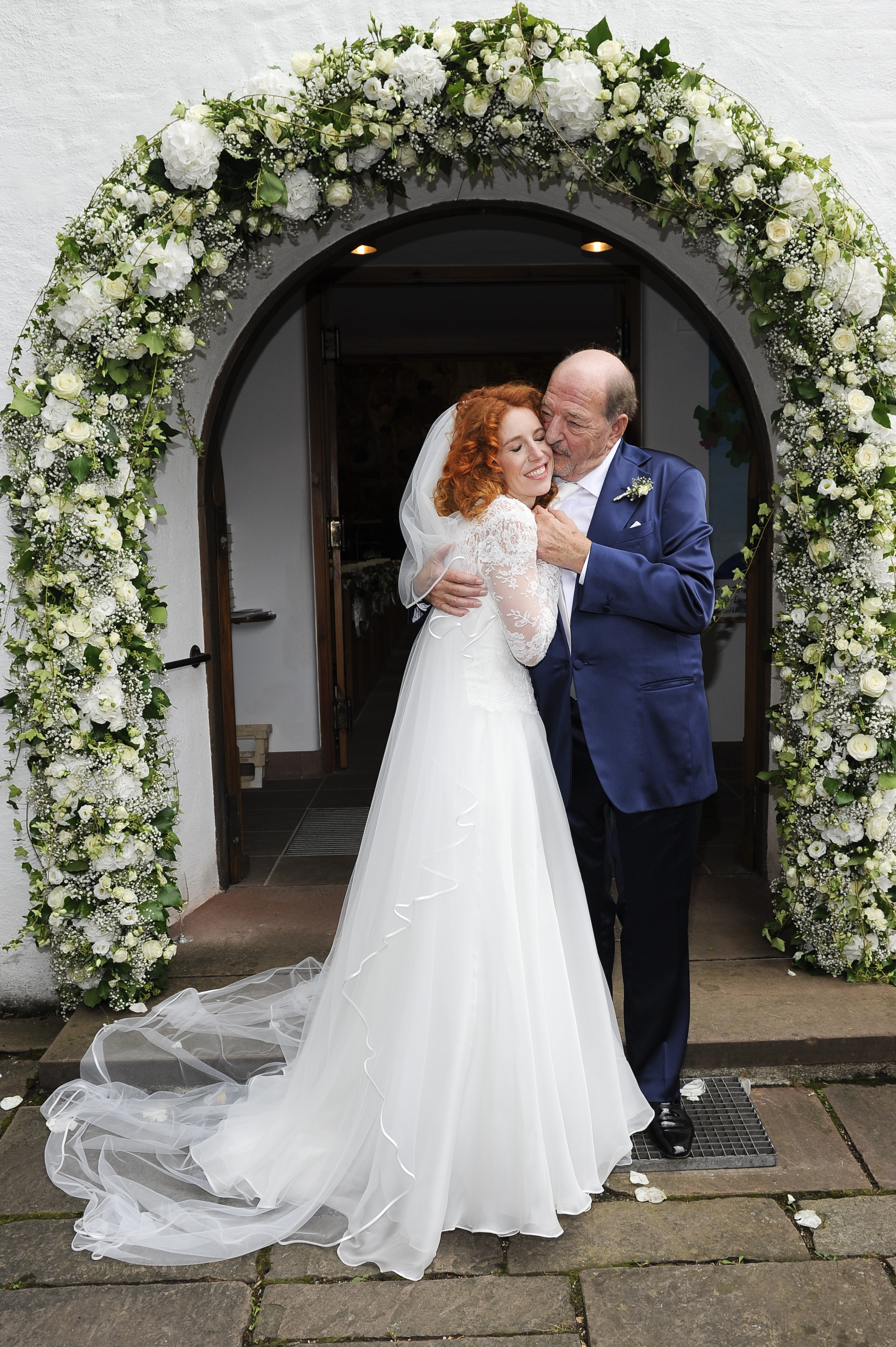|
Nur Die Liebe Läßt Uns Leben
Germany was represented at the Eurovision Song Contest 1972 with the song "", composed by Joachim Heider, with lyrics by Joachim Relin, and performed by Mary Roos. The German participating broadcaster on behalf of ARD, (SFB), selected their entry through a national final. Roos would later represent Germany again in . Before Eurovision The final was held at the TV studios in West Berlin, hosted by Karin Tietze-Ludwig and Renate Bauer. Twelve songs took part with voting done in two parts by a 10-member jury. Firstly, each jury member awarded between 1 and 5 points to each song. The votes were tallied and the four highest-scoring songs went through to the next round. Each juror then named their favourite of the remaining four. The voting was close (4-3-3-0) and the choice of "Nur die Liebe läßt uns leben" was not particularly warmly received, as "Geh' die Straße" by Cindy & Bert had won the first voting round and had received the best audience reception of the twelve so ... [...More Info...] [...Related Items...] OR: [Wikipedia] [Google] [Baidu] |
ARD (broadcaster)
ARD is a joint organisation of Germany's regional Public broadcasting, public-service broadcasters. It was founded in 1950 in West Germany to represent the common interests of the new, decentralised, post-war broadcasting services—in particular the introduction of a joint television network. ARD has a budget of €6.9 billion, 22,612 employees and is the largest public broadcaster network in the world. The budget comes primarily from a mandatory licence fee which every household, company and public institution, regardless of television ownership, is required by law to pay. For an ordinary household the fee is €18.36 per month, as of 2023. Households living on Welfare in Germany, welfare are exempt from the fee. The fees are not collected directly by ARD, but by the Beitragsservice von ARD, ZDF und Deutschlandradio, Beitragsservice (formerly known as Gebühreneinzugszentrale GEZ), a common organisation by the ARD member broadcasters, the second public TV broadcaster ZDF, and De ... [...More Info...] [...Related Items...] OR: [Wikipedia] [Google] [Baidu] |
Sender Freies Berlin
Sender Freies Berlin (; abbreviated SFB ; ) was the ARD public radio and television service for Berlin from 1 June 1954 until 30 April 2003. On 1 January 1992, SFB became the public broadcaster for the whole of reunited Berlin. However, SFB had long had a significant audience in East Berlin for some time before German reunification. On 1 May 2003 it merged with Ostdeutscher Rundfunk Brandenburg to form ''Rundfunk Berlin-Brandenburg''. History Pre-war In 1922, the ''Deutsche Stunde, Gesellschaft für drahtlose Belehrung und Unterhaltung mbH'' (German Society for Wireless Instruction and Entertainment Limited) was formed to promote the new science of radio broadcasting and reception. This institution began broadcasting on 29 October 1923 from Berlin. In 1933, German broadcasting was brought under Nazi state control and the station became ''Reichssender Berlin'', part of the national ''Großdeutscher Rundfunk'', controlled by Joseph Goebbels. The station was closed by the Al ... [...More Info...] [...Related Items...] OR: [Wikipedia] [Google] [Baidu] |
Mary Roos
Mary Roos (born Rosemarie Schwab on 9 January 1949) is a German singer and actress. Biography 1949–1970 Schwab was born in Bingen am Rhein, Bingen. At the age of nine, she recorded her first song "Ja die Dicken sind ja so gemütlich" as ''Die kleine Rosemarie''. It was no major commercial success. In 1958, she also appeared in the film ''Die Straße''. Over the following years she would release many records and she also appeared in many singing competitions. Her first chart success came in 1965, when the single "Geh nicht den Weg" peaked at #36. In 1969, she took part in the Grand Prix RTL International with the song "Die Legende der Liebe". The same year, she reached the single charts again – "Das hat die Welt noch nicht erlebt" peaked at #19. Her first major was achieved in 1970 with the song "Arizona Man". It peaked at #9 in the single charts and remains her only top ten hit to date. The same year, she took part in the Germany in the Eurovision Song Contest 1970, Ge ... [...More Info...] [...Related Items...] OR: [Wikipedia] [Google] [Baidu] |
Eurovision Song Contest 1972
The Eurovision Song Contest 1972 was the 17th edition of the Eurovision Song Contest. It took place in Edinburgh, Scotland, United Kingdom and was organised by the European Broadcasting Union (EBU) and host broadcaster British Broadcasting Corporation (BBC), who agreed to stage the event after the Monégasque broadcaster Télé Monte Carlo (TMC), who won in , was unable to meet the demands of hosting the event and could not find a suitable venue. The contest was held at the Usher Hall on 25 March 1972 and was hosted by Scottish ballet dancer Moira Shearer. Eighteen countries took part in the contest, the same number as the previous year. This contest marked the first time that the event was hosted in Scotland. Prior to 1972, when the BBC hosted the contest in , , and , it had always chosen a venue in London. However, for the Eurovision Song Contest 1972, the BBC broke this trend and chose to host the competition in the Scottish capital, marking the first time that London had n ... [...More Info...] [...Related Items...] OR: [Wikipedia] [Google] [Baidu] |
West Berlin
West Berlin ( or , ) was a political enclave which comprised the western part of Berlin from 1948 until 1990, during the Cold War. Although West Berlin lacked any sovereignty and was under military occupation until German reunification in 1990, the territory was claimed by the West Germany, Federal Republic of Germany (FRG or West Germany), despite being entirely surrounded by the East Germany, German Democratic Republic (GDR or East Germany). The legality of this claim was contested by the Soviet Union and other Eastern Bloc countries. However, West Berlin de facto aligned itself politically with the FRG from May 1949 and was thereafter treated as a ''de facto'' city-state of that country. After 1949, it was directly or indirectly represented in the institutions of the FRG, and most of its residents were citizens of the FRG. West Berlin was formally controlled by the Western Allies and entirely surrounded by East Berlin and East Germany. West Berlin had great symbolic signi ... [...More Info...] [...Related Items...] OR: [Wikipedia] [Google] [Baidu] |
Cindy & Bert
Cindy and Bert were a German schlager vocal duo from Völklingen, Saarland consisting of Jutta Gusenberger (born 26 January 1948) and Norbert Berger (12 September 1945 – 14 July 2012). They were most successful in the 1970s, and are known for their participation in the 1974 Eurovision Song Contest. Background One of the labels that the duo recorded for was the BASF label. One single they recorded for the label was "Ich fand eine Hand" which was released in 1971. Early career Gusenberger and Berger started singing together in 1965, and were married in 1967. They signed a recording contract in 1969, with singles being regularly issued, notably "Der Hund von Baskerville", an unlikely cover version of Black Sabbath's "Paranoid" which has become a collector's curiosity. Their most successful period came between 1972 and 1975 when they placed eight singles on the German chart, including their biggest hit "Immer wieder Sonntags" which reached #3. Eurovision Song Contest Cind ... [...More Info...] [...Related Items...] OR: [Wikipedia] [Google] [Baidu] |
Edina Pop
Dschinghis Khan (; "Genghis Khan") is a German Eurodisco pop band. It was originally formed in Munich in 1979 to compete in the Eurovision Song Contest with their song "Dschinghis Khan". The original group consisted of six members: Louis Hendrik Potgieter, Edina Pop, Henriette Strobel, Wolfgang Heichel, Leslie Mándoki, and Steve Bender, performed from 1979 to their first disbandment in 1985. In 2005, the surviving Dschinghis Khan members reunited to recreate the music group that had been broken up, but years later they separately organized different bands all under the brand name "Dschinghis Khan". History Beginning: 1979–1985 Dschinghis Khan was managed by German producer Ralph Siegel and choreographed by Hannes Winkler, one of the most famous German choreographers during that time. Their original eponymous song was written and produced by Siegel with lyrics by Bernd Meinunger and came in fourth place at the Eurovision Song Contest 1979 in Jerusalem. Their name is one of ... [...More Info...] [...Related Items...] OR: [Wikipedia] [Google] [Baidu] |
Ralph Siegel
Ralph Siegel (born 30 September 1945) is a German record producer and songwriter. Siegel is one of the most notable figures at the Eurovision Song Contest, in which he has participated with 24 songs so far, among them the 1982 winner song Ein bisschen Frieden. Life and career Ralph Siegel was born the son of composer and of singer Ingeborg Döderlein. Siegel is a prolific producer in the German genre of Schlager music. Since the early 1970s, he worked with artists like Udo Jürgens, Mary Roos, Heino, Rex Gildo, Michael Holm, Chris Roberts (singer), Chris Roberts, Costa Cordalis, Mireille Mathieu, Peter Alexander (Austrian performer), Peter Alexander, Roy Black (singer), Roy Black, Karel Gott and Marianne Rosenberg. Since 1972 has participated with 24 songs in the Eurovision Song Contest, the latest being the Eurovision Song Contest 2017, 2017 San Marino in the Eurovision Song Contest, Sammarinese entry "Spirit of the Night" by Valentina Monetta and Jimmie Wilson (singer), ... [...More Info...] [...Related Items...] OR: [Wikipedia] [Google] [Baidu] |
Olivia Molina (singer)
Olivia Molina (born January 3, 1946) is a German Mexicans, German-Mexican singer. Born in Copenhagen, Olivia Molina grew up in Mexico. Her mother was a German people, German dancer, born in Flensburg, her father a musician and bandleader, born in San Cristóbal de las Casas, San Cristobal, Chiapas, Mexico. Olivia Molina started her career as a singer in Acapulco, Mexico, at the age of fourteen. When still in school, she scored her earliest success in hits by Paul Anka, Ricky Nelson and Brenda Lee. Olivia Molina sang in clubs and hotels, and was awarded her first recording contract by the Peerless record company in Mexico City when still a teenager. External links Official Website 1946 births Living people Mexican people of German descent Danish emigrants to Mexico 21st-century Mexican singers 21st-century Mexican women singers {{mexico-singer-stub ... [...More Info...] [...Related Items...] OR: [Wikipedia] [Google] [Baidu] |




